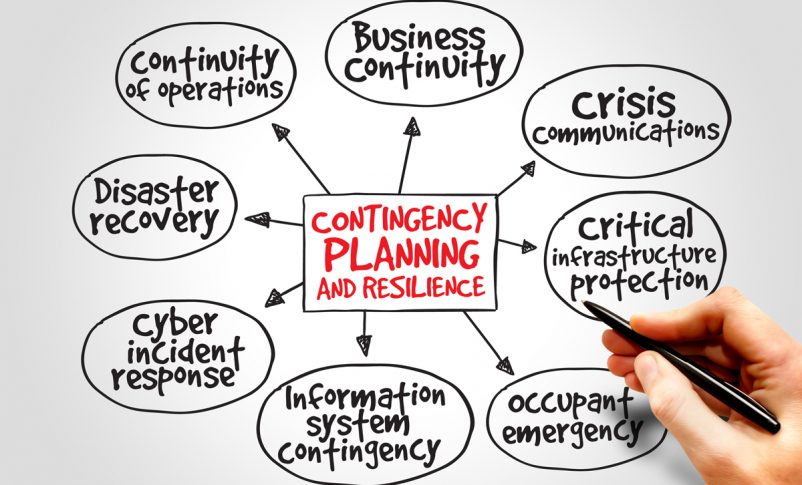Managing a PR Crisis During Covid-19
[ad_1]
Tip #3 – Managing a PR Crisis During Covid-19
David Blackburn, founder of www.MarketingQuotes.co.uk providing businesses with FIVE Agency quotes for FREE, talks about your business and how to deal with a crisis as we fight to survive Covid-19.
A PR crisis can happen to any business, new or experienced, from a product recall to a staff injury becoming public news. So, it’s best to have a plan of action to ensure you’re prepared. There are many types of crisis that could befall your business, including public relations blunders, social media gaffes, product recalls, cyberattacks, data breaches, and possibly having a public spat, as Richard Branson recently had. When asking for £500 m government loan to prop-up his airline, we were reminded he sued the beloved NHS over a lost contract. Silly, silly Richard.
So how do you manage a PR crisis?
Plan
Write a PR Crisis plan. Asses your risks – Identify potential crises that would disrupt your business function and/or processes. Determine the impact on your business including:
- Customer dissatisfaction or attrition
- A damaged reputation in the public eye
- Lost or delayed sales or income
- Increased expenses
- Regulatory fines
Identify Contingencies – which actions will help your company to respond effectively to each crisis scenario? Plan the steps required to resolve a given crisis, the resources required, and how employees can help. E.g. A social media blunder might include your digital team issuing statements across all your social media platforms, while your customer service team is briefed on what to say on incoming calls.
Write the Plan – with relevant stakeholders in mind, whilst for certain scenarios, you may also need input from outside parties, such as contractors and partners that work closely with your business.
Familiarise – It’s important that all employees are familiar with the plan and understand their roles during a crisis. Remember, stress and panic can make it difficult to remember your role in a crisis response. Ensure your stakeholders have the information they need. During the tense moments of a crisis, people require very quick access to straightforward information.
Revise – it is important to revisit your plan frequently to keep the plan up to date, especially as employees join or leave the company, new technologies are implemented, and other changes occur.
Team
Identify a PR crisis team to take responsibility for making decisions quickly and effectively and can spearhead communications to get quick messages out to audiences, such as your customers and the media. Typical roles the team would adopt should include:
- Head of communications
- Press release and speech writer
- Spokesperson – to speak to the media or be quoted in press releases
- Liaison for audiences, such as for customers to contact and to answer their calls
- Collector – to gather all coverage of the crisis, such as in newspapers, on television, and online
Each team member should understand their role and make sure they stick to it during a crisis, however, some of the team can carry out multiple roles depending on the size of your business.
Crisis Scenarios
A PR crisis can be daunting and overwhelming, so it’s wise to plan with your team and list the different types that might happen. Depending on your business, this could include:
- Injury to staff, clients or the public because of your business
- A quality issue or defect with one of your products
- Legal action that is taken against your company by an employee, a client or customer
- A natural disaster that affects or damages your business, like a storm or flood or right now Covid-19!
Audience
Audiences will differ from business to business, and may include: Employees, Customers, Investors, Local or national media, People who live close to your business, Government departments and regulators, and lastly, Shareholders or Partners.
Questions
Compile a list of common questions that each audience group might ask following news of the crisis. Questions from your employees might be about whether it’s safe to come into work. Questions from the media might be about what caused an incident and how you’ll prevent it from happening again. This will help you to draft answers, so you’re prepared should such questions be asked.
Communicate
Decide how you will communicate with the media. Decide whether you will notify them with a press release only, or if it will be better to update them with emailed statements, or alternatively, you may wish to hold a press conference. Lastly, make sure all content is factually correct before it’s sent out.
Crisis Command Centre
Identify where your Crisis Command Centre will be, and ample enough where your team can gather and work during the crisis. The location could be a space on your premises or a suitable location off site. If off site it should be available at short notice and have telephone and internet access.
Distribute Your Plan & Test
Distribute the plan to each member of the Crisis Team, making sure they understand it and are fully prepped, so they can react and respond to a crisis quickly. This includes making sure your spokesperson is sufficiently trained to speak to the media. Test your plan to see if any areas can be improved. The more prepared you and your team are, the better your company’s response will be if a crisis happens.
Written by: David Blackburn, founder of Marketing Quotes, providing businesses with FIVE Agency Quotes for FREE. E: support@ Written by: David Blackburn, founder of Marketing Quotes, providing businesses with FIVE Agency Quotes for FREE. E: support@marketingquotes.co.uk
MarketingQuotes.co.uk
Media Contact Details
Barry Walker, Black Chilli
Tadley, United Kingdom
